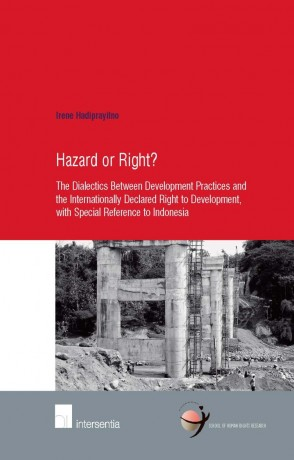
Contrary to the generally positive connotation of development as structural improvement in people's well-being, development policies, programmes and projects often affect people's lives in a negative way. Is there, then, a protection against such "development hazards"? The question is highly topical as about ten million people annually enter the cycle of forced displacement and relocation due to development projects. Their lack of access to decision-making on development policies is part of the problem. In this context the internationally declared right to development might offer a solution as it stipulates free and meaningful participation.
The analyses in this volume show that the official and international consensus on the moral ideas behind the right to development is insufficient to guarantee proliferation and implementation of that discourse at the grass root level. In Indonesia, efforts towards implementation reflect different dynamics entailing competing encounters between all stakeholders, which sometimes are unfavourable to the poor. Notably, the enforcement of the right to development – as both a legal resource and a political instrument to change development practices – needs to be firmly rooted in an enabling, rather than adverse, national environment.
While opening a new dialogue on the right to development as an instrument to combat development hazards, this book reveals the complex interface between human rights and development as actually practised.